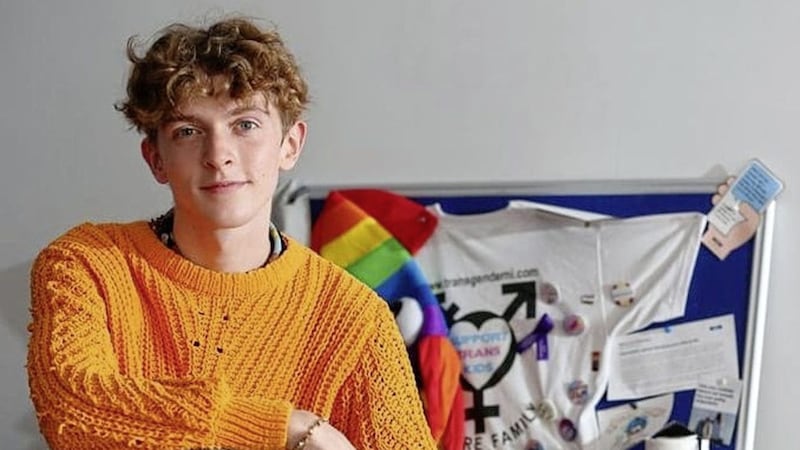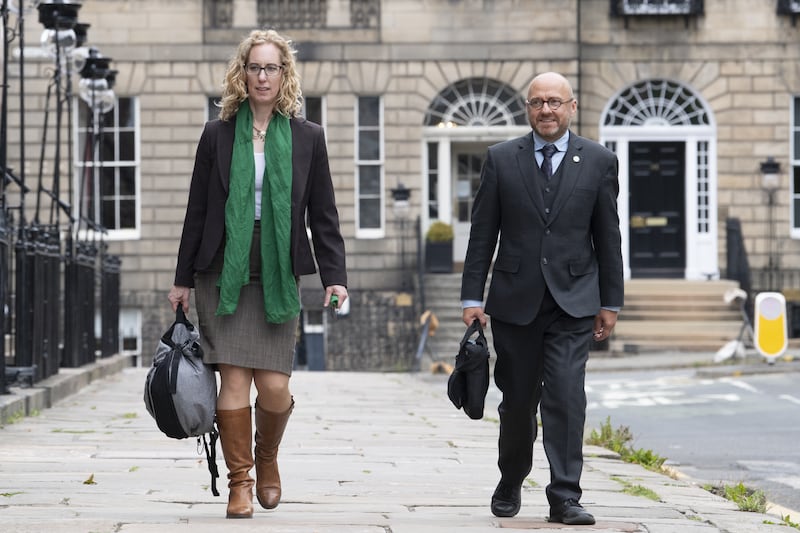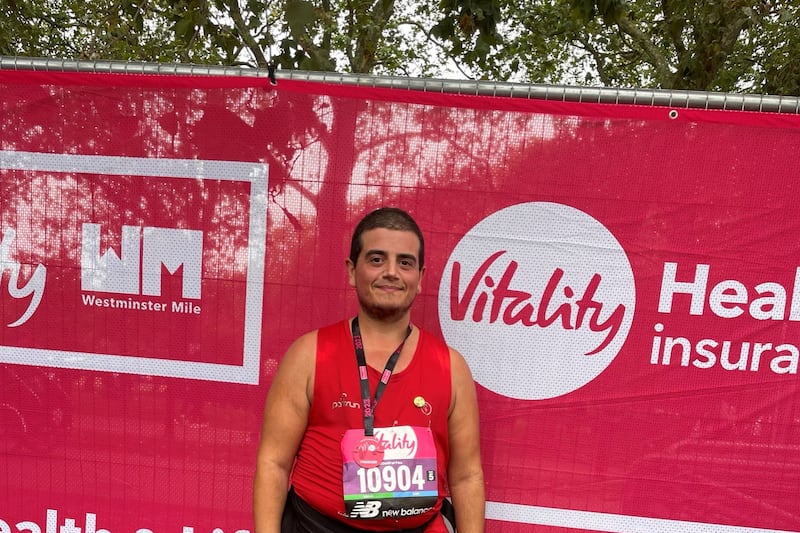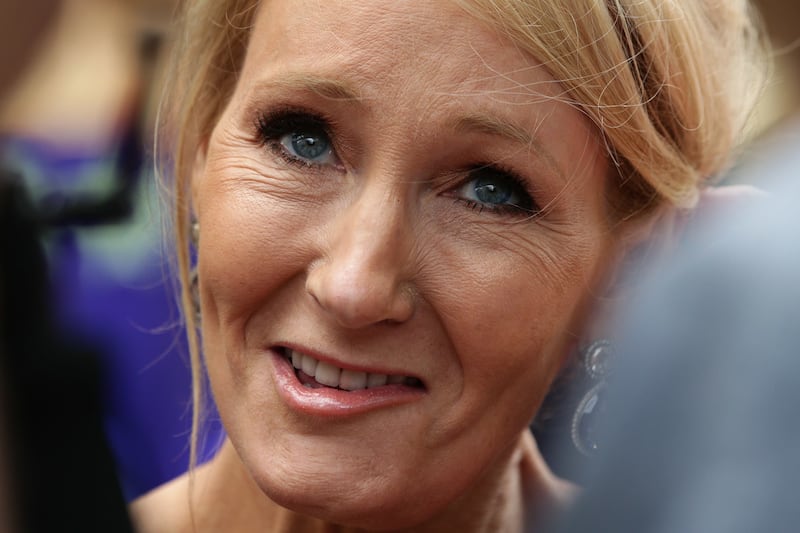WHEN lockdown restrictions were implemented back in March, the Belfast Trans Resource Centre closed its doors and moved its services online, determined to still provide support for a community already impacted by isolation and mental health issues.
For many who were regular users of the centre – the only trans community space in Ireland and the UK – it had been a safe place to meet their LGBTQ friends. For others, the Covid pandemic threw surgery plans into disarray. Mental health interventions were put back. In some cases, blood tests were no longer available to monitor hormone levels.
A community already facing discrimination, stigma and a cessation of gender-affirming healthcare services since early 2018 was now dealing with its own mental health and wellbeing pandemic.
While Covid has undoubtedly exacerbated the mental health crisis within the north's trans community, Alexa Moore, director of Transgender NI, points out that many were struggling long before the outbreak of the virus. Brackenburn Clinic, the only gender identity clinic here, has been unable to take on any new patients for almost three years.
In June of this year, there were 460 individuals on the waiting list to be seen. Increased demand coupled with a lack of funding and staff has resulted in such a lengthy waiting list and not having access to the necessary health services has led to an increased number of trans people struggling with depression, anxiety and self-harm.
In addition, it's a long and involved process to assign gender care and those seeking it – both adults and under 18 – must go through rigorous mental health assessments. Only when deemed mentally fit can they progress which Alexa says creates a catch 22 situation.
“These institutionalised barriers to care create an unsustainable service,” she says. “Waiting times are increased and what we're seeing is that many people within the trans community are having to lie to their clinicians; telling them what they want to hear.
“If a trans person is honest and admits to being depressed or anxious or has another condition, this may slow down their access to care. But the reality is that access to gender-affirming care could massively improve their mental health.
“A lot of trans people have mental health issues. They've been hearing the narrative that being trans is a mental illness itself, which is not the case. The reason the figure is so high is because of the discrimination we experience, the barriers to education and employment and the lack of access to health care which might improve lives.
“When you have a trans person living in a transphobic society and having to deal with the stress of being in a minority, not being able to access health care because of their mental health means they are continuously caught in that loop.”
Last Friday marked the annual Transgender Day of Remembrance – started in 1999 by transgender advocate Gwendolyn Ann Smith as a vigil to honour the memory of Rita Hester, a transgender woman who was killed in 1998.
To coincide with Transgender Day of Remembrance, Interim Mental Health Champion Professor Siobhan O’Neill committed to raise awareness of mental health and wellbeing of transgender people.
Calling for greater support to help those who identify as transgender and who are struggling with their mental health, Prof O’Neill, who has engaged with a number of groups who provide guidance and support to transgender people, said a lot more work needed to be done to raise awareness of the stigmas facing so many in the community and urged people to be kinder in their treatment and understanding of transgender people as well as their use of language.
“Many people are currently struggling with their mental health in 2020 due to the effects of the Covid-19 pandemic and the restrictions,” says Prof O'Neill. “I am keen to ensure we are kind to each other, and especially thinking of the huge societal issues and stigmas, all of which are unfair, faced every day by transgender people.
"I feel strongly that we should nurture a culture of respect to our family, friends, and wider community regardless of their gender identity.
“For some transgender people, their journey is a happy one, and they relish their life; however, this isn’t the picture across the board. Many transgender people struggle with mental health needs and find it difficult to access gender-affirming care and treatments, all of which adds to their mental health pressures.
“It is imperative that in an equal society, transgender people can access appropriate support when they need it, and that we focus on seeing the person, and doing what we can to help ease the pressures many transgender people tell us they face in employment, their homes, neighbourhoods and daily lives.”
Prof O'Neill said she had been surprised to learn that gender-affirming healthcare services had not been available since early 2018 and said this was a source of great distress for many people. She also said that often, many transgender people meet with negative reactions from loved ones and society and feel they are not loved or accepted for who they are. And she said negative language used against them only served to add to their distress.
“It was previously thought that being transgender was a mental illness and that it was all in people's heads and needed to be treated as such,” she says. “Thankfully that isn't the case any more. But there is still a lack of information and a lot of ignorance out there that needs to be addressed.
“Some people are reticent to accept that there is a difference between biological sex and brain sex. Other societies are more encompassing and more accepting of people who are gender neutral and non-binary. But we are a more traditional, conservative society. We are not there yet and this causes pain to people who don't quite fit into a box.
“We are still learning here. We were late in terms of Pride and there is still a lot of discrimination against the gay community in some rural areas.”
A review of gender-affirming services is currently under way, with both Alexa and Prof O'Neill calling for adequate, prompt delivery and a holistic approach. One development has been the appointment of a dedicated Trainee Advanced Nurse Practitioner (Mental Health), Katrin Lehmann, who works with transgender young people.
Katrin says: “Transgender Day of Remembrance highlights the fact that so many transgender people experience marginalisation and transphobia all too often.
“Currently here in Northern Ireland, commissioning is ongoing to establish a new multidisciplinary service for transgender people, and it's really encouraging that many aspects of this service can be led outside of a medical model – particularly by nurses and advanced nurse practitioners, and the role we can play in supporting transgender people with their mental health and general wellbeing alongside our colleagues from other disciplines.”
Alexa welcomes the advocacy work that has been done with Katrin but wants to see more involvement from the trans community in the review.
“It is imperative that trans people are able to access healthcare interventions in a timely and human rights compliant manner – where this support is delivered and social stigma is tackled, trans people are able to thrive and contribute significantly to our society, culture and communities,” she says.
“The systemic issues affecting trans people in healthcare, education, housing and many other areas are preventing us from dealing with this mental health epidemic, and as such a systemic approach to supporting trans communities must be taken to address this."








